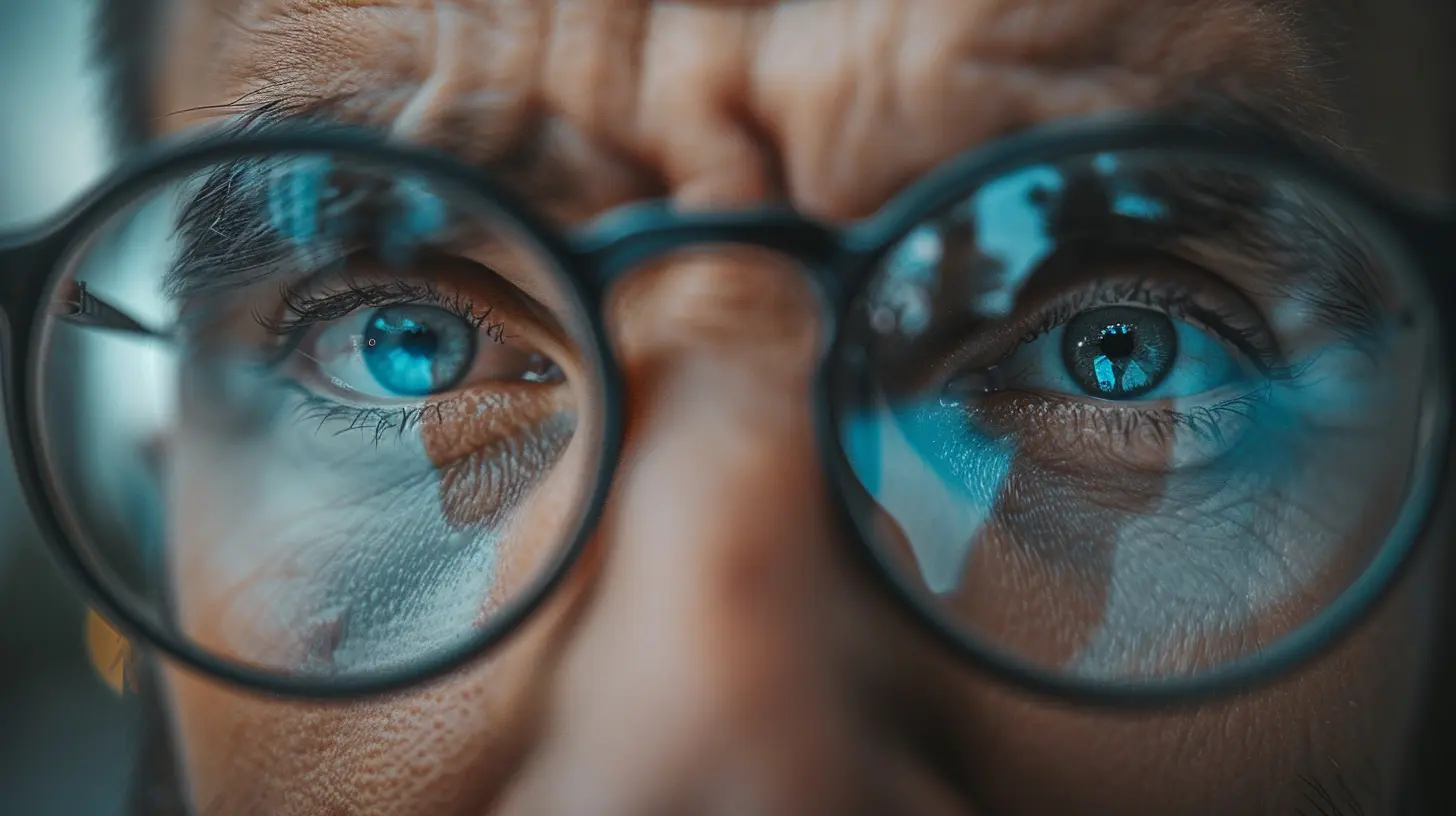Personalization in Ads: The New Frontier for Customer Acquisition
9 November 2025
Let’s face it—nobody likes to feel like just another number. Not in a crowded room and definitely not when bombarded by online ads. These days, if you're not tailoring your marketing to the individual, you're missing out on massive opportunities. That’s where personalization in ads steps in, swinging the door wide open to a new era of customer acquisition.
In a world where attention spans are shorter than a goldfish's memory (seriously, it’s been studied), grabbing your target audience is more challenging than ever. But guess what? Personalized advertising doesn’t just get attention—it builds real connections. And in business, connections convert.
So if you’re tired of throwing spaghetti at the wall with generic marketing and hoping something sticks, it’s time to dive deep into personalization. This article’s going to walk you through why it works, how to do it, and what it means for your bottom line.
Why Personalization Is the Game-Changer in Advertising
You’ve probably noticed it yourself. Have you ever searched for a new pair of running shoes, and suddenly you're seeing ads for athletic gear, sportswear, and fitness apps all over your feed? Creepy? Maybe. Effective? Absolutely.Personalization in ads means your audience sees messages tailored just for them—and it’s rooted in data. Demographics, browsing behavior, purchase history, social media activity—all of this helps brands understand what makes us click.
The Power of Feeling Seen
Think about it. When someone remembers your name, your favorite coffee order, or what you love to talk about—it feels good, right? Ads that reflect this same level of familiarity grab your attention. They feel less like a sales pitch and more like a helpful suggestion from a friend.When consumers feel like brands “get them,” trust increases. And trust is the first stop on the customer journey highway.
How Personalization Works—And Why It’s Not One-Size-Fits-All
Just slapping someone’s first name in an email subject line doesn’t cut it anymore. Personalization has evolved—and it’s a lot smarter now.Let’s break down the key ways brands are nailing it:
1. Behavioral Targeting
This is all about understanding what users do online. If someone browses your product pages but doesn’t buy, that’s a signal. Retargeting them with a discount or a reminder ad can be the nudge they need.Ever window-shop online and then see an ad pop up with a “Still thinking about this?” message? That’s behavioral targeting in action. And yep, it works like a charm.
2. Predictive Analytics
Imagine being able to predict what your customers want before they even know themselves. With machine learning and AI, that’s not sci-fi—it’s reality.Brands use predictive analytics to suggest products, content, or services based on past behavior. Kind of like a digital crystal ball. Netflix and Amazon are masters at this, recommending stuff you didn’t even realize you wanted.
3. Dynamic Content
No two people are the same—so why serve them the same ad? With dynamic content, businesses can show different headlines, images, or offers based on who’s viewing the ad.It’s like having a conversation with a different tone depending on who you’re talking to. Grandma gets kindness and cookies. Your best friend? Sarcasm and memes.
Benefits of Personalized Ads for Business Owners
Okay, now let's get into the good stuff—what’s in it for you as a business owner or marketer?Better Engagement
Personalized content grabs attention. And when people are more engaged, they’re more likely to act—whether that’s clicking, buying, or sharing.More Conversions
At the end of the day, it’s all about ROI, right? Personalized ads drive significantly higher conversion rates because they address the pain points and preferences of your audience.Improved Customer Loyalty
When you show up with the right message at the right time, customers remember that. You’re no longer just a brand—they see you as a trusted partner. That kind of customer loyalty? Pure gold.Smarter Ad Spend
Stop wasting dollars on people who aren’t interested. Personalized ads help you focus your budget on high-probability prospects. That means lower cost per acquisition and better overall efficiency.
How to Start Personalizing Your Ads
Feeling pumped about personalization but not sure where to start? No worries—I’ve got you.Here’s your beginner-friendly roadmap:
Step 1: Know Your Audience (Like, Really Know Them)
Get into the nitty-gritty. Beyond age and gender, learn about your audience’s values, habits, problems, and preferences. Use surveys, customer feedback, social listening tools, or simply dive into Google Analytics.Step 2: Segment Like a Pro
Not everyone in your audience is the same. Divide them into smart segments based on behavior, interests, buying stage, or demographics. It’s like organizing your wardrobe—you wouldn’t hang swimsuits next to winter coats.Step 3: Craft Tailored Messages
Once you’ve got your segments, speak to each one directly. Use different ad copy, visuals, and calls-to-action (CTAs) that resonate with their unique needs.Step 4: Test, Tweak, and Repeat
Don’t just set it and forget it. A/B test different versions of your ads to see what performs best. Use those insights to refine future campaigns.Pitfalls to Avoid (Because Hey, Nobody’s Perfect)
Before you hit “go” on a personalized ad campaign, here are a few common mistakes to steer clear of:Getting Too Creepy
Yes, you want to be relevant, but being too invasive can backfire. Keep it helpful—not stalker-level specific. Respect privacy laws like GDPR and always be transparent about data use.Over-Automation
Automation is awesome—but don’t let your campaigns lose the human touch. People know when they're talking to a robot. Blend the tech with genuine storytelling.Ignoring Mobile Users
If your ads look weird or load slowly on mobile, you're toast. Make sure every touchpoint feels buttery-smooth on phones and tablets, where most browsing happens these days.Real-World Examples That Prove It Works
Let’s get inspired, shall we?Spotify Wrapped
Once a year, Spotify serves up a personalized year-in-review. And people LOVE it. Why? Because it’s all about them. Their music, their moments. It's a viral event that’s really just brilliant personalized marketing in disguise.Amazon’s “Recommended for You”
Ever bought something and immediately got hit with, “People who bought this also liked…”? That’s predictive personalization at work—and it’s responsible for a large chunk of Amazon’s sales.Coca-Cola’s “Share a Coke” Campaign
They printed names on bottles. People hunted for their own name or a friend’s. It was simple, personal, and incredibly viral. Proof that even a product as universal as soda can be personalized.The Future of Personalized Advertising
So where are we headed? The possibilities are wild.AI and Machine Learning
As AI improves, personalization will get sharper, faster, and more intuitive. Ads will feel more like conversations than banners—in real-time.Voice and Conversational Ads
With Alexa, Siri, and Google in the mix, voice-activated personalization is emerging. Imagine asking your smart speaker for vacation ideas and getting tailored travel deals instantly.Hyper-Personalization
Think beyond just segmenting. Soon, brands will deliver totally unique ad experiences to individual users, factoring in real-time data, emotions, and context. Yep, it’s getting that deep.Wrapping It Up: Personalization Isn’t a Trend—It’s the Standard
If there’s one truth in marketing today, it’s this: customers expect more. More attention, more relevance, more understanding. And personalization is the key that unlocks all three.It’s not about being flashy—it’s about being thoughtful. When you meet your audience where they are, speak their language, and show them you care, guess what? They show up for you too.
So whether you’re running a startup, scaling a mid-size business, or leading marketing at a big brand, personalization isn’t optional anymore. It’s the new frontier in customer acquisition—and those who embrace it will win big.
Are your ads ready to get personal?
all images in this post were generated using AI tools
Category:
Customer AcquisitionAuthor:

Lily Pacheco
Discussion
rate this article
1 comments
Greyson McRae
Personalization in ads revolutionizes customer acquisition, enhancing engagement and driving conversions through tailored experiences.
November 12, 2025 at 4:38 AM

Lily Pacheco
Absolutely! Personalization not only boosts engagement but also significantly increases conversion rates by delivering relevant experiences that resonate with customers.


